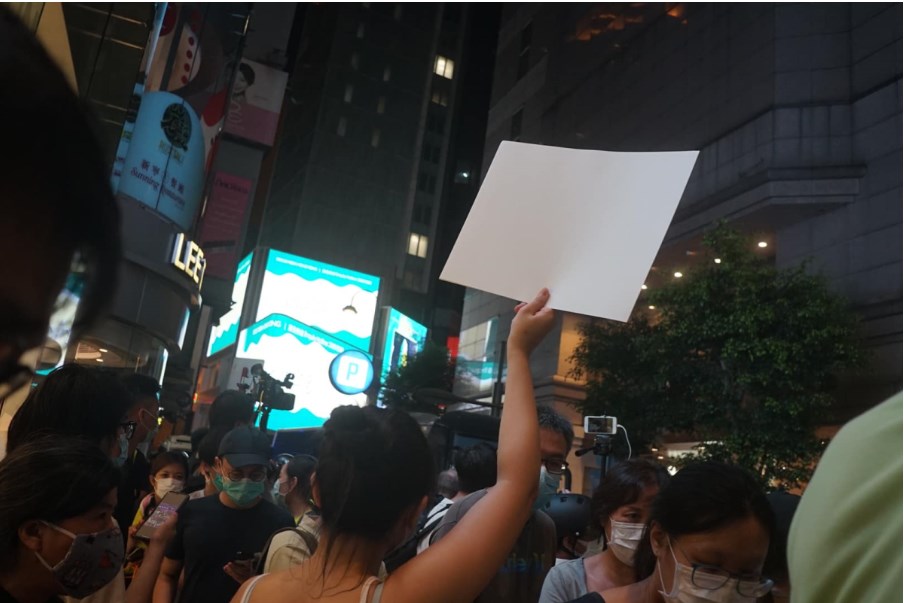By Michelle Ng
Since the Hong Kong protests began 13 months ago, the world has seen so many images of police violence that the only possible conclusion it can reach with an intact conscience is this: so tenuous does Beijing view its grip on power that it would go to any lengths to squash the Hong Kong protests, lest the liberal values they embody travel across the border and infiltrate the hearts and minds of mainlanders.
To me, however, the one photo that is most stinging a rebuke to Beijing contains no scenes of police savagery: snapped on the night of the July 1 protest, which was held on the day a draconian freedom-curbing law came into effect, the close-up shows the back view of a young woman in a white tank top. Her hair tied up in a bun as she raises one arm to brandish a placard. The placard is blank.

Her gesture, she told a reporter, was inspired by a joke she once heard about the Soviet Union: someone begins to distribute pamphlets at the Red Square; a policemen accosts her, only to discover she is handing out blank papers. The policeman arrests her all the same. “You mean you think I didn’t know what you wanted to say?” he bellows at her.
I had to reach back a decade to find an indictment of Beijing as telling as that of the girl’s blank placard. In 2010, a full five years after dissident writer Liu Binyan (刘宾雁) had died in exile, the Chinese government finally granted his family permission to bury his ashes in Beijing. It didn’t let them carve the epitaph Liu had hoped to put on his gravestone, though. It was supposed to have read: “Here lies a Chinese who did what he ought to have done, and said what he ought to have said.” (长眠于此的这个中国人,曾做了他应该做的事, 说了他应该说的话).

Ironically, by refusing to allow Liu’s epitaph to appear on his gravestone, the Chinese Communist Party only drew attention to it. I, for one, doubt if I would have remembered the epitaph word for word had it not been for the ban.
And now that the regime that had once persecuted Liu is trying to pummel Hong Kong into submission, the people of Hong Kong can, among other things, seek substance in Liu to sustain their spirits. The liberal values of dead mainlanders are affecting Hong Kong even before Hong Kong is affecting the mainland.
Maybe next time, all Hong Kong protesters should head out to marches with blank placards in hand.
Michelle Ng is a bilingual writer based in Hong Kong. She is also an English writing coach. Visit her blog.
